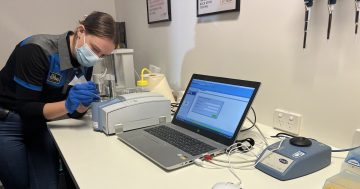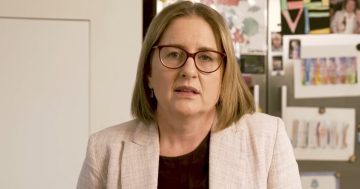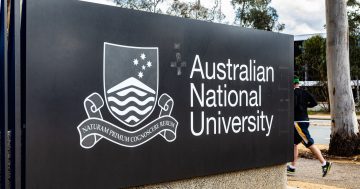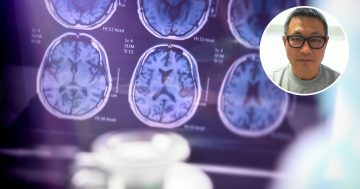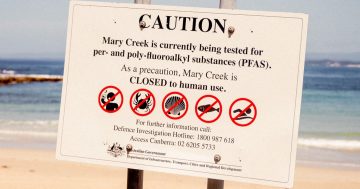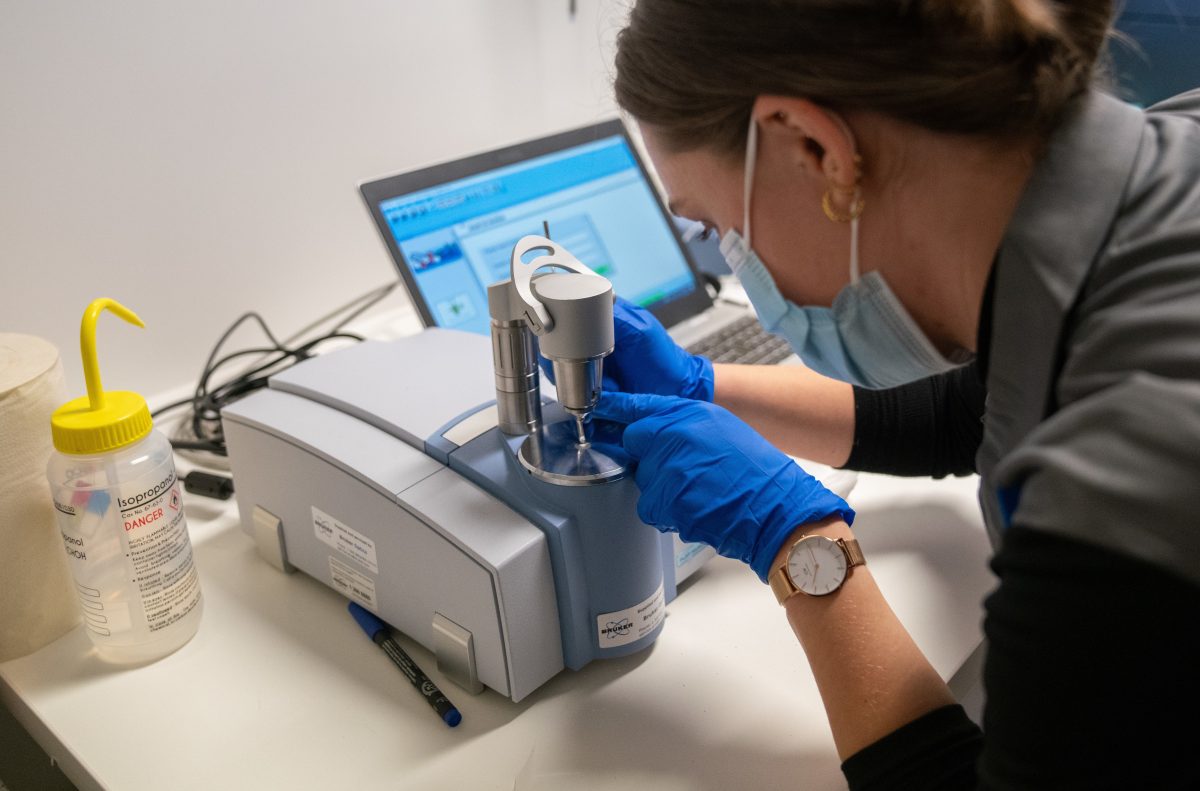
CanTEST’s ANU chemists can not only identify known substances but characterise new drugs that have never been seen before. Photo: Tracey Nearmy/ANU.
An increasing appetite for ketamine and the higher purity of drugs such as cocaine have become apparent in the second year of the ACT’s illicit drug testing service.
The year was also marked by the detection of an unknown drug that made global headlines and thrust CanTEST into the drug testing spotlight.
Over the two years, testing found 252 new psychoactive substances.
Clinical Lead at CanTEST Dr David Caldicott was taken aback by the popularity of ketamine-like drugs – an anaesthetic that can make people happy, relaxed, disconnected from their body and cause hallucinations.
Dr Caldicott said one of the merits of drug testing was that it provided valuable information about trends in the community and market.
“So we can be quite certain within the ACT that we’ve got a pretty good idea of what’s coming through and what’s starting to show its head,” he said.
That also applied to the increasing purity of cocaine, which pointed to more of it being around or a change in the type of person getting their drugs tested, Dr Caldicott said.
The dearth of opioids detected also suggested that they were not prevalent in the illicit market, yet Canberra did have a serious opioid problem from prescription painkillers.
“We may as doctors have to look at how we prescribe them … and it may just be that we’re releasing too much of it into the wild,” he said.
Dr Caldicott said the drug-checking service allows professionals to triangulate other pieces of information, such as the wastewater analysis, to provide more granularity and more meaning to how people were using drugs.
While individual information was not shared with police, CanTEST data did contribute to the overall picture.
Dr Caldicott believed CanTEST had proven its worth as a service that had dissuaded drug use and saved lives, despite fears it would only normalise dangerous behaviour.
Dr Caldicott said the ability to earn the trust of Canberra’s drug-taking community to gather valuable information and provide expert advice was priceless.
“The best news of everything is that we have a point of engagement with a group of people who actually don’t talk about their drug use with anyone else except each other and from a healthcare perspective, that’s absolute gold,” he said.
It also meant that when warnings were issued, they were taken more seriously and reached more people than before CanTEST started operating.
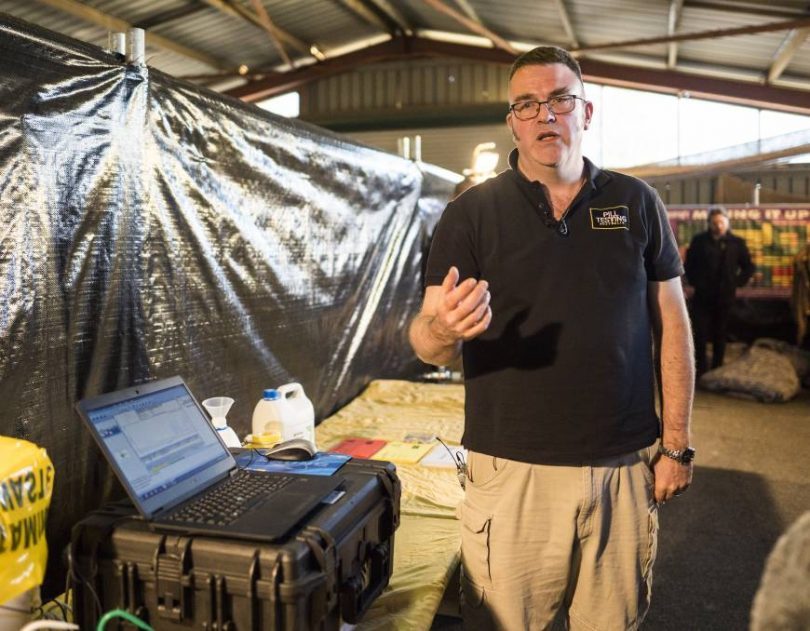
Dr David Caldicott: “We can be quite certain within the ACT that we’ve got a pretty good idea of what’s coming through and what’s starting to show its head.” Photo: Pill Testing Australia.
The service had persuaded between 10 and 20 per cent of people not to use the drugs at all, which Dr Caldicott said was just the icing on the cake.
He said that while people might not bin their drugs, the advice they received had changed what could be dangerous behaviour, such as taking cocktails of drugs or mixing them with alcohol.
CanTEST became more popular in its second year with 1786 samples, up from 1153, and 2447 interventions, up from 1594.
It identified a drug that had never been seen before, which grabbed global attention.
“We’ve demonstrated that our ANU chemists have the expertise to not only identify that which comes through but even characterise new drugs that have never been seen before.
“There are a variety of drugs which now we know about because they were identified here in Canberra, and that information has gone global. It’s a matter of discussion, both academic, but also with drug user forums.”
Dr Caldicott would prefer that people did not take drugs at all, but “I’m realistic enough to know that young people take risks”.
“I would rather that they risk speeding on a road than juggling a chainsaw.
“A lot of people who present to us … are just looking for some more information, not just about the drugs that they’re presenting with, but also more about drugs in general and whether they would interact with medication for depression or whatever.
“This is where they can find sensible information rather than information delivered to them by a giraffe, who’s telling them just to say no.”
MDMA, ketamine and cocaine were the most commonly tested drugs at CanTEST, followed by methamphetamine and heroin.
Other substances presented for testing included psychedelic drugs, counterfeit and falsified medications sold on the black market, and substances mimicking other drugs.
The CanTEST Health and Drug Checking Service is run by Directions Health Services in partnership with Pill Testing Australia and the Canberra Alliance for Harm Minimisation and Advocacy.
In June this year, the ACT Government committed to funding the service until June 2027.
CanTEST’s two-year report can be found on its website.
Original Article published by Ian Bushnell on Riotact.


